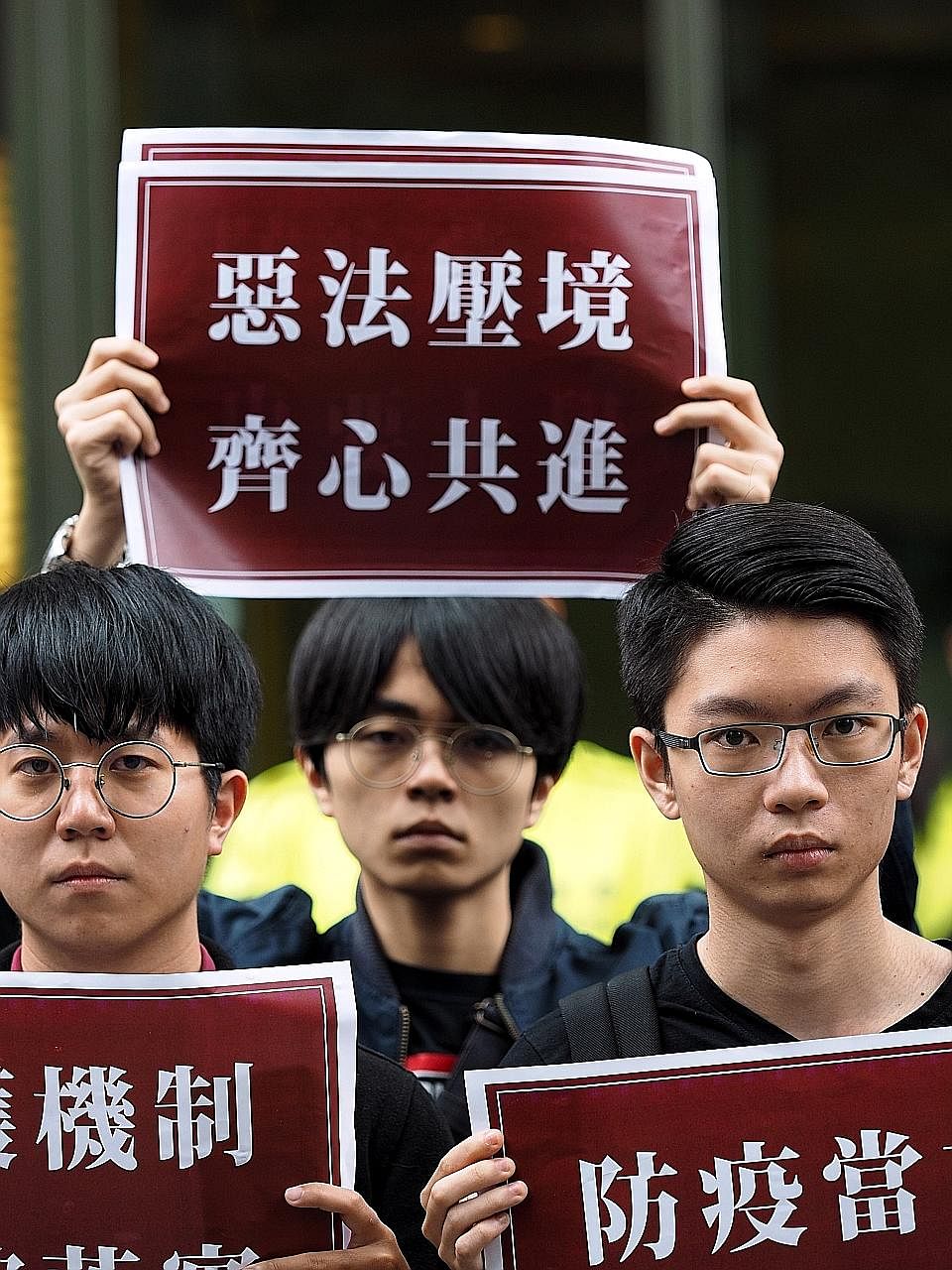HONG KONG • Hong Kong lawmakers resumed a debate yesterday on a controversial Bill that would make disrespecting China's national anthem a criminal offence, as the city braces itself for fresh protests amid simmering anti-government tensions.
The Bill is likely to be passed today - when Hong Kong residents also mark the June 4, 1989, anniversary of Chinese troops opening fire on pro-democracy students in and around Tiananmen Square.
A vigil marking the anniversary has been cancelled for the first time, owing to the coronavirus pandemic, but activists still plan to rally.
The ban comes on the heels of China's plan to directly impose a national security law on Hong Kong, a move that has drawn international condemnation and revived anti-government demonstrations in the former British colony.
Hong Kong leader Carrie Lam and officials from the justice and security departments arrived in Beijing yesterday to discuss the new legislation. She said the central government would not back down on plans for national security legislation, even as Britain stepped up criticism of the move.
She stood by her criticism of foreign leaders who have been speaking out against the planned security law, singling out the United States and Britain.
"I can only say that the international community and some of the foreign governments have been adopting blatant double standards in dealing with this matter and commenting on this matter," Mrs Lam said.
British Prime Minister Boris Johnson said yesterday that Beijing's decision would "dramatically" erode Hong Kong's autonomy, and Britain was prepared to change its immigration rules to accommodate Hong Kong residents.
Even before China announced its plan for the security law, there was a surge in renewals of British National (Overseas) passports by Hong Kong residents, while immigration consultants have reported a rush of inquiries from people looking to move overseas.
Some companies, including HSBC Holdings, have come under pressure to support the national security law. Yesterday, HSBC said it "respects and supports" legislation that stabilises order in Hong Kong.
The Jardines group - one of Hong Kong's original foreign trading houses - yesterday published a full-page statement in pro-Beijing newspaper Ta Kung Pao, saying it was important to enact a legal framework to safeguard the city's national security. The group's flagship company, Jardine Matheson Holdings, is listed in Singapore.

A survey of US businesses yesterday revealed deep fears for the future of their operations in Hong Kong if China imposes the national security legislation.
The survey, conducted for the American Chamber of Commerce (Amcham), showed 30 per cent of respondents were "moderately" concerned and 53.3 per cent were "very concerned" about the law, which aims to tackle secession, subversion, terrorism and foreign interference in Hong Kong.
About 60 per cent thought the legislation would harm their business operations, citing concerns about ambiguity in scope and enforcement, erosion of autonomy, talent drain, Hong Kong's international status, social unrest and the independence of the justice system, among others.
A third said they were considering moving capital, assets or business operations out of the semi-autonomous city, while 38 per cent said they were personally considering moving out of Hong Kong.
The survey, conducted from June 1 to 2, received responses from 180, or 15 per cent, of Amcham's members.
REUTERS

